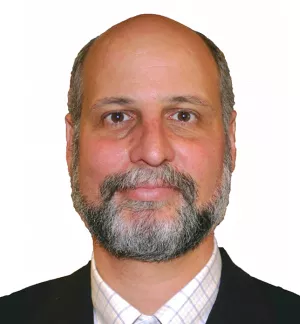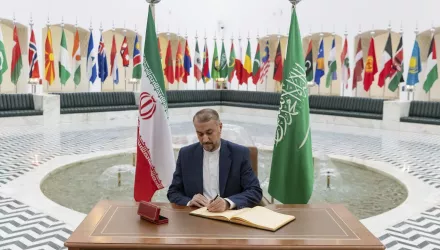Interview with Martin Malin
INTERVIEW. So Iran doesn't have nuclear weapons: Now what?
How do the NIE's findings affect both your job and the jobs of others following Iran's nuclear ambitions?
I think the majority of the people who look at this problem objectively have understood that Iran has had considerable difficulty enriching uranium and that it is extremely unlikely that they have nuclear materials in Iran.
Now, nobody knows whether or not Iran has a covert nuclear program that might be enriching uranium out of public view. We do know what it's doing at Natanz and that the International Atomic Energy Agency visited there, and we know how many centrifuges are spinning there, etc., so the NIE doesn't come as a great surprise.
In comparison to a nuclear program such as Pakistan's, which followed a similar blueprint, why has Iran's nuclear push proven so difficult?
In order to make a bomb, you need either plutonium or highly enriched uranium. To get plutonium, you need a reactor and the technology to separate the plutonium and get the stuff you can make the bomb with. To enrich uranium, you need to procure it or enrich it yourself -- and the process of enriching it through fast-spinning centrifuges is very difficult. Iran has had technical difficulties with their centrifuge program for a number of years.
What the NIE said is that while they are interested in achieving the capability to produce nuclear fuel, they're not looking to produce a weapon. So, what's been holding them up has been largely the technological challenge of enriching uranium and not the political costs of going after a weapon -- an endeavor they abandoned in 2003.
Read the rest of the interview on the Metro Boston website.
Notte, Jason. “Exchanging Rhetoric for Reason with Iran.” Metro Boston, December 5, 2007
The full text of this publication is available via Metro Boston.




